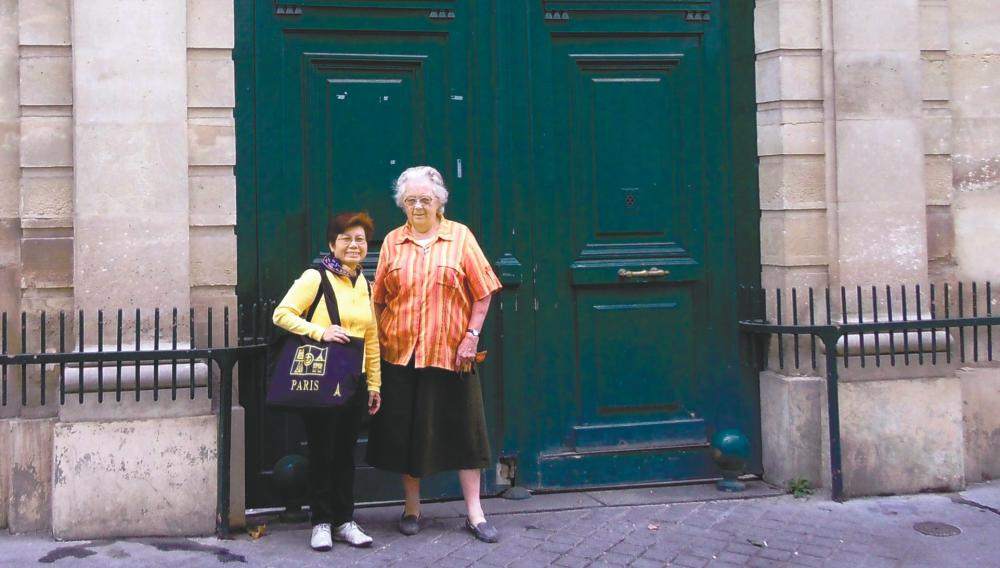THERE was a time a convent school background meant you were a cut above the rest.
Convent girls were encouraged to excel in their studies and extracurricular activities, and were also instilled with school pride, something they held on to long after leaving their alma mater.
One of these former convent girls was Chen Yen Ling, who studied at St Anne’s Convent School from standard one to form three (1965-1973), in her hometown of Kulim, Kedah.
Long fascinated by the nuns who taught her, she eventually decided to write a book telling their story.
Her mission took her from Penang to Paris, France, to unearth information about the order of French nuns known as the Infant Jesus Sisters, who travelled to Malaya 165 years ago and started one of the first convent schools here.
The book took eight years to complete, as Chen told us in an email interview, adding that the last four years were more focused, with her doing more intensive research, verifying information, and writing.
The determination to see their story in print came in 2014, after Chen visited the Mother House in Paris, the Infant Jesus Sisters (IJS) archives in Kuala Lumpur, and the graves of the first sisters who arrived in Penang.
She hopes to share what she has written with as many ‘old school convent girls’ as possible, especially those from the baby boomer generation.
“It has been very rewarding when people thank me for the time and effort spent researching and compiling the history of our schools, and sharing it with them.
“It [was] hard work, including fighting distractions to stay focused over eight years in order to ‘get [the story] all out’.
“Now I am a bit more ambitious. I hope to reach out to younger generations, and also school authorities, [about] the importance of recording [history].”
When asked why learning about these French nuns was so important, Chen replied: “Because their epic journey changed our lives in Malaysia so significantly, not just for women, but [for] men as well.
“We must remember that the no-nonsense, persevering and indomitable nuns did not just educate girls academically, but also prepared them for the ‘battle of life’.
“These include their ability to serve well [as seen in their motto]: ‘Simple in virtue, Steadfast in duty’, as well as to [become] good mothers at home.
“This assumed that all or most [of the] ladies would marry, and have the responsibility [of raising] happy families and [teaching] their children [to] eventually contribute positively to society.”
Chen felt it was especially important to share their story, as convent girls fill every layer of society today, ranging from diligent and wise money-managing housewives, to cabinet ministers.
“The ‘old school’ convent girls [were] educated during the reign of these spartan nuns, and grew up during challenging times when Malaya [was] transitioning into Malaysia, [and the nation’s] under-developed status benefited tremendously from their presence.
“The convent schools significantly produced an educated and reliable work force to serve the country.
“English was, and still is, universally important and neutral.
“In the nuns’ schools, everyone was equal – [no matter] which social, cultural, or religious background each student [came from].
“The IJS institute and the phenomenally-dedicated nuns not only raised solid buildings from jungle grounds – in which our present national schools are housed – but also planted strong [foundations] for the current school system.”
To some, missionary schools are now seen as remnants of a colonial past, back when Westerners and western ideas were thought of as superior.
Chen said this was one of the factors that motivated her to intensify her research, to show that there was more to convent schools than that, and that the schools helped promote education and good values, which can still be appreciated by young people of today.
“Although I do think it may be difficult for them to appreciate the importance of knowing the roots and ethos of convent schools at this point in time, I do hope that this can be a starting point [for them] to get interested.”
There is an old saying that you can tell a convent girl from a mile away.
Chen opines: “Well, that depends on what yardsticks are being used to measure school pride and good manners.
“Old school convent girls like to complain about the present generation, and I hope these millennials won’t classify us as ‘irrelevant’.
“I do think being disciplined and well-mannered, as well as upholding the principles of being ‘simple in virtue, steadfast in duty’ are very important, and should not be in the past tense.”














